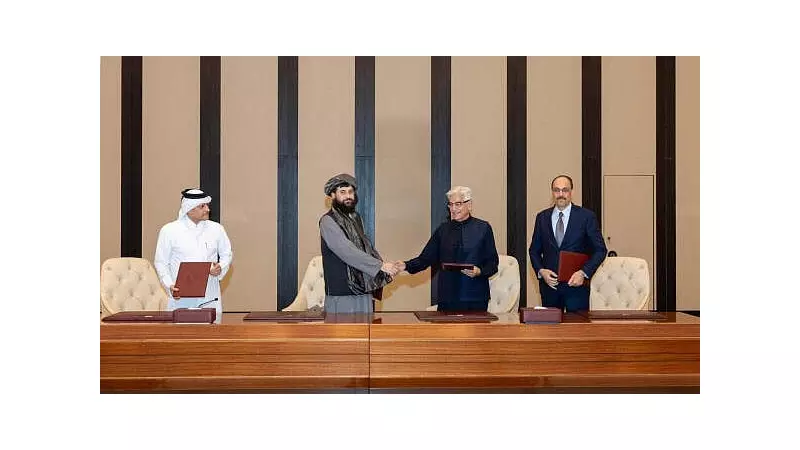
In a significant diplomatic move, Pakistan and Afghanistan are gearing up for their second round of crucial talks in Turkey, aiming to defuse mounting tensions along their volatile shared border. The upcoming dialogue comes at a critical juncture in bilateral relations between the neighboring nations.
Escalating Border Concerns Prompt Diplomatic Action
The decision to hold these high-level talks follows recent escalations at the Torkham border crossing, one of the most important transit points between the two countries. Security concerns and cross-border movement issues have been creating friction, necessitating immediate diplomatic intervention.
Pakistan's Foreign Office spokesperson Mumtaz Zahra Baloch confirmed the development, stating that both nations recognize the urgency of addressing these pressing border issues through peaceful dialogue and diplomatic channels.
Key Agenda Points for the Turkey Talks
The upcoming discussions are expected to focus on several critical areas:
- Border security management and coordination mechanisms
- Cross-border terrorism concerns and counter-terrorism cooperation
- Trade and transit facilitation through key border crossings
- Refugee management and bilateral relations improvement
Regional Implications and International Attention
The Pakistan-Afghanistan border situation has drawn significant international attention, given the region's strategic importance and ongoing security challenges. The talks in Turkey represent a crucial opportunity to stabilize relations between Islamabad and the Taliban-led government in Kabul.
Regional stability hangs in the balance as both nations navigate complex security dynamics and historical tensions. The outcome of these discussions could have far-reaching implications for South Asian security architecture and international counter-terrorism efforts.
Diplomatic observers are closely monitoring the situation, hoping that the Turkey-mediated talks will yield concrete confidence-building measures and establish sustainable mechanisms for managing border disputes between the two Muslim-majority nations.





